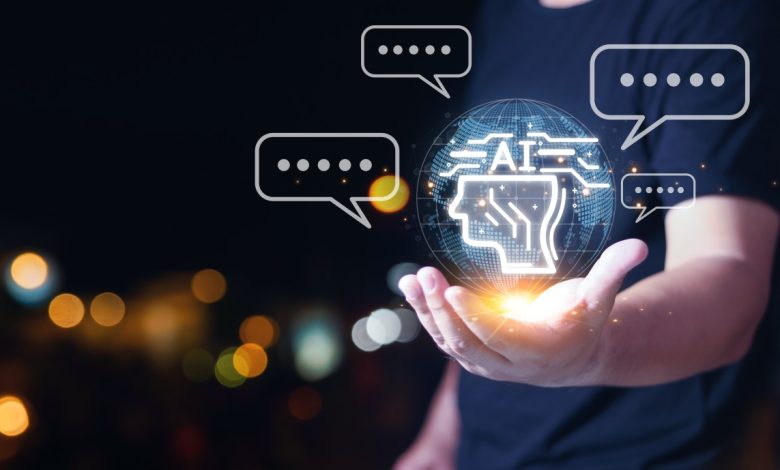The Ethical Implications of AI in Decision-Making

The Ethical Implications of AI in Decision-Making
Artificial Intelligence (AI) is transforming the way we make decisions. From healthcare and finance to criminal justice, AI systems assist in choices that once depended solely on human judgment. While AI can improve efficiency and accuracy, it raises significant ethical issues. These issues can impact trust, transparency, and accountability. Understanding these ethical implications is essential as AI becomes more integral in decision-making processes.
1. Bias in AI Algorithms
One of the major ethical concerns with AI is bias. AI systems learn from data. If the data contains biases, the AI can replicate or even amplify them. For example, if an AI system is trained on hiring data that historically favored certain groups, it may develop similar biases. As a result, it might favor specific demographics over others, reinforcing discrimination.
Bias in AI can affect fairness. In criminal justice, biased AI algorithms can lead to unfair sentencing or policing. In healthcare, they can impact treatment decisions for different groups. Recognizing and addressing bias is critical. AI developers need to understand the sources of bias and work to reduce them.
2. Lack of Transparency
AI decision-making lacks transparency, which creates ethical issues. Many AI models, especially complex ones, operate as “black boxes.” This means that even the developers might not fully understand how the AI makes decisions. This lack of clarity is concerning in fields where transparency is crucial, such as law or healthcare.
For instance, if an AI system denies a loan application, the applicant should understand why. However, if the AI system is a black box, providing clear answers can be challenging. Lack of transparency can lead to mistrust. People may question the fairness and reliability of AI-based decisions. To address this, AI systems need to be interpretable. Explainable AI techniques are emerging to make AI decisions more understandable. However, creating fully transparent AI models remains a challenge.
3. Accountability Issues
AI decision-making introduces questions about accountability. When an AI system makes a poor decision, who is responsible? Is it the developer, the user, or the organization that deployed the AI? This lack of clear accountability poses ethical risks.
For instance, if an AI-assisted medical diagnosis leads to harm, who is accountable? Without clear guidelines, assigning responsibility can be complex. Accountability is vital to maintain trust in AI systems. To address this, many suggest creating guidelines that define responsibility in AI decision-making. Legal frameworks may also need updates to address AI accountability issues.
4. Privacy Concerns
AI relies heavily on data, often personal or sensitive. This reliance raises privacy concerns. AI systems may use data to analyze behavior, predict preferences, or even monitor health. However, collecting and processing this data can infringe on individual privacy.
For instance, facial recognition AI can identify individuals in public spaces. While this technology may improve security, it also raises ethical concerns about privacy. Constant monitoring can feel invasive. In healthcare, AI may use patient data for diagnosis or treatment predictions. Without strict safeguards, this data could be misused.
Privacy laws like GDPR in Europe are stepping in to protect personal data. However, the fast growth of AI outpaces regulation in many regions. Organizations must adopt strong data protection policies. They should also prioritize user consent when collecting data for AI purposes.
5. Impact on Human Autonomy
AI’s role in decision-making can impact human autonomy. When AI systems handle decisions, they may reduce the need for human judgment. This shift can make people feel less in control, especially in areas where personal values matter.
For instance, in medical settings, AI might suggest treatments based on data patterns. However, patients may feel uncomfortable relying solely on AI for critical health decisions. Similarly, if an AI system influences hiring decisions, employees might feel reduced autonomy in shaping their workplace culture.
AI should enhance human decision-making, not replace it. Ethical AI practices encourage “human-in-the-loop” models, where humans remain involved in critical decisions. This approach helps balance AI’s benefits with the need for human judgment.
6. Risk of Manipulation
AI can be used to manipulate behavior, raising ethical concerns. Advanced AI can analyze and predict individual preferences, making it easier to influence decisions subtly. For example, AI-powered recommendation systems can encourage certain purchasing behaviors. While this can benefit businesses, it may also exploit consumers.
In political contexts, AI can shape public opinion. Social media platforms use AI algorithms to suggest content, which can create echo chambers. This practice can limit diverse perspectives and reinforce existing beliefs, leading to polarization. Recognizing these risks is essential. Companies need ethical guidelines that prevent AI from being used to manipulate users unfairly.
7. Employment Displacement
AI automation can streamline operations but also threatens jobs. As AI systems perform tasks once done by humans, there’s a risk of employment displacement. This impact is especially visible in industries like manufacturing, customer service, and data analysis.
Job displacement raises ethical concerns about economic inequality. Workers without access to training may struggle to find new roles. Organizations adopting AI should consider the social impact on their workforce. Ethical AI development involves balancing efficiency with responsibility toward employees.
Some suggest retraining programs as a solution. By offering training, organizations can help employees transition into new roles, reducing the negative impact of automation.

8. The Need for Ethical Guidelines
The ethical implications of AI in decision-making highlight the need for guidelines. As AI grows, so does the importance of setting ethical standards. Governments, organizations, and researchers must collaborate to establish ethical AI principles.
Many tech companies are now creating internal AI ethics boards. These boards aim to monitor AI projects for ethical issues. Some companies publish their ethical guidelines, promoting transparency and accountability. The European Union and other governments are also drafting AI regulations to ensure ethical use.
Ethical guidelines can cover several areas, including transparency, accountability, and fairness. Such guidelines help organizations navigate the complex ethical landscape of AI decision-making.
9. The Role of AI Ethics Training
As AI becomes more common, training in AI ethics is essential. Developers, policymakers, and users need to understand the ethical implications of AI. By educating people on ethical issues, organizations can create more responsible AI systems.
AI ethics training can cover various topics. It can include data privacy, bias detection, and accountability. Understanding these areas helps developers build fair and transparent AI systems. AI ethics training is also important for end-users. When users understand AI’s potential ethical risks, they can make informed choices.
Conclusion
AI in decision-making offers many benefits but comes with ethical challenges. Issues like bias, lack of transparency, and privacy concerns require careful consideration. Without addressing these issues, AI can harm trust, fairness, and individual rights.
To build ethical AI systems, developers, organizations, and policymakers must work together. Ethical guidelines, transparent practices, and accountability are essential. Additionally, AI ethics training can help prepare individuals for responsible AI use. By focusing on these areas, we can harness AI’s potential while respecting ethical values.
AI will continue to evolve, influencing more aspects of our lives. The ethical implications of AI in decision-making remind us that technology must serve humanity. As we integrate AI further, prioritizing ethics will ensure that it benefits everyone.





